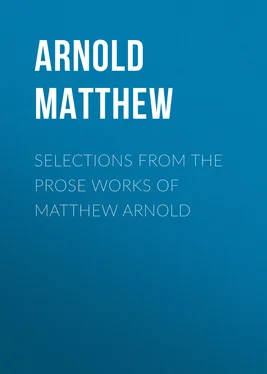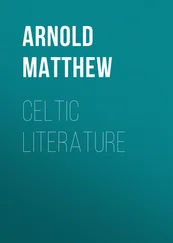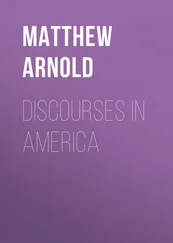Matthew Arnold - Selections from the Prose Works of Matthew Arnold
Здесь есть возможность читать онлайн «Matthew Arnold - Selections from the Prose Works of Matthew Arnold» — ознакомительный отрывок электронной книги совершенно бесплатно, а после прочтения отрывка купить полную версию. В некоторых случаях можно слушать аудио, скачать через торрент в формате fb2 и присутствует краткое содержание. Жанр: foreign_prose, literature_19, foreign_antique, на английском языке. Описание произведения, (предисловие) а так же отзывы посетителей доступны на портале библиотеки ЛибКат.
- Название:Selections from the Prose Works of Matthew Arnold
- Автор:
- Жанр:
- Год:неизвестен
- ISBN:нет данных
- Рейтинг книги:5 / 5. Голосов: 1
-
Избранное:Добавить в избранное
- Отзывы:
-
Ваша оценка:
- 100
- 1
- 2
- 3
- 4
- 5
Selections from the Prose Works of Matthew Arnold: краткое содержание, описание и аннотация
Предлагаем к чтению аннотацию, описание, краткое содержание или предисловие (зависит от того, что написал сам автор книги «Selections from the Prose Works of Matthew Arnold»). Если вы не нашли необходимую информацию о книге — напишите в комментариях, мы постараемся отыскать её.
Selections from the Prose Works of Matthew Arnold — читать онлайн ознакомительный отрывок
Ниже представлен текст книги, разбитый по страницам. Система сохранения места последней прочитанной страницы, позволяет с удобством читать онлайн бесплатно книгу «Selections from the Prose Works of Matthew Arnold», без необходимости каждый раз заново искать на чём Вы остановились. Поставьте закладку, и сможете в любой момент перейти на страницу, на которой закончили чтение.
Интервал:
Закладка:
For a complete bibliography of Arnold's writings and of Arnold criticism, see Bibliography of Matthew Arnold , by T.B. Smart, London, 1892. The letters of Matthew Arnold, 1848-88, were edited by G.W.E. Russell in 1896.
BIRRELL, AUGUSTINE: Res Judicatæ , London, 1892.
BROWNELL, W.C.: Victorian Prose Masters , New York, 1902.
BURROUGHS, JOHN: Indoor Studies , Boston, 1889.
DAWSON, W.H.: Matthew Arnold and his Relation to the Thought of our Time , New York, 1904.
FITCH, SIR JOSHUA: Thomas and Matthew Arnold and their Influence on English Education , New York, 1897.
GATES, L.E.: Selections from the Prose Writings of Matthew Arnold , New York, 1898.
HARRISON, FREDERIC: Culture; A Dialogue . In The Choice of Books , London, 1886.
HUTTON, R.H.: Modern Guides of English Thought in Matters of Faith , London, 1887.
JACOBS, JOSEPH: Literary Studies , London, 1895.
PAUL, HERBERT W.: Matthew Arnold . In English Men of Letters Series , London and New York, 1902.
ROBERTSON, JOHN M.: Modern Humanists , London, 1891.
RUSSELL, G.W.E.: Matthew Arnold , New York, 1904.
SAINTSBURY, GEORGE: Corrected Impressions , London, 1895. Matthew Arnold . In Modern English Writers Series , London, 1899.
SHAIRP, J.C.: Culture and Religion , Edinburgh, 1870.
SPEDDING, JAMES: Reviews and Discussions , London, 1879.
STEPHEN, SIR LESLIE: Studies of a Biographer , vol. 2, London, 1898.
WOODBERRY, GEORGE E.: Makers of Literature , London, 1900.
~SELECTIONS FROM MATTHEW ARNOLD~
I. THEORIES OF LITERATURE AND CRITICISM
POETRY AND THE CLASSICS 2 2 ~Poetry and the Classics~. Published as Preface to Poems : 1853 (dated Fox How, Ambleside, October 1, 1853). It was reprinted in Irish Essays, 1882.
In two small volumes of Poems, published anonymously, one in 1849, the other in 1852, many of the Poems which compose the present volume have already appeared. The rest are now published for the first time.
I have, in the present collection, omitted the poem 3 3 ~the poem~. Empedocles on Etna .
from which the volume published in 1852 took its title. I have done so, not because the subject of it was a Sicilian Greek born between two and three thousand years ago, although many persons would think this a sufficient reason. Neither have I done so because I had, in my own opinion, failed in the delineation which I intended to effect. I intended to delineate the feelings of one of the last of the Greek religious philosophers, one of the family of Orpheus and Musæus, having survived his fellows, living on into a time when the habits of Greek thought and feeling had begun fast to change, character to dwindle, the influence of the Sophists 4 4 ~the Sophists~. "A name given by the Greeks about the middle of the fifth century B.C. to certain teachers of a superior grade who, distinguishing themselves from philosophers on the one hand and from artists and craftsmen on the other, claimed to prepare their pupils, not for any particular study or profession, but for civic life." Encyclopædia Britannica .
to prevail. Into the feelings of a man so situated there are entered much that we are accustomed to consider as exclusively modern; how much, the fragments of Empedocles himself which remain to us are sufficient at least to indicate. What those who are familiar only with the great monuments of early Greek genius suppose to be its exclusive characteristics, have disappeared; the calm, the cheerfulness, the disinterested objectivity have disappeared; the dialogue of the mind with itself has commenced; modern problems have presented themselves; we hear already the doubts, we witness the discouragement, of Hamlet and of Faust.
The representation of such a man's feelings must be interesting, if consistently drawn. We all naturally take pleasure, says Aristotle, 5 5 Poetics , 4.
in any imitation or representation whatever: this is the basis of our love of poetry: and we take pleasure in them, he adds, because all knowledge is naturally agreeable to us; not to the philosopher only, but to mankind at large. Every representation therefore which is consistently drawn may be supposed to be interesting, inasmuch as it gratifies this natural interest in knowledge of all kinds. What is not interesting, is that which does not add to our knowledge of any kind; that which is vaguely conceived and loosely drawn; a representation which is general, indeterminate, and faint, instead of being particular, precise, and firm.
Any accurate representation may therefore be expected to be interesting; but, if the representation be a poetical one, more than this is demanded. It is demanded, not only that it shall interest, but also that it shall inspirit and rejoice the reader: that it shall convey a charm, and infuse delight. For the Muses, as Hesiod 6 6 Theognis , ll. 54-56.
says, were born that they might be "a forgetfulness of evils, and a truce from cares": and it is not enough that the poet should add to the knowledge of men, it is required of him also that he should add to their happiness. "All art," says Schiller, "is dedicated to joy, and there is no higher and no more serious problem, than how to make men happy. The right art is that alone, which creates the highest enjoyment."
A poetical work, therefore, is not yet justified when it has been shown to be an accurate, and therefore interesting representation; it has to be shown also that it is a representation from which men can derive enjoyment. In presence of the most tragic circumstances, represented in a work of art, the feeling of enjoyment, as is well known, may still subsist: the representation of the most utter calamity, of the liveliest anguish, is not sufficient to destroy it: the more tragic the situation, the deeper becomes the enjoyment; and the situation is more tragic in proportion as it becomes more terrible.
What then are the situations, from the representation of which, though accurate, no poetical enjoyment can be derived? They are those in which the suffering finds no vent in action; in which a continuous state of mental distress is prolonged, unrelieved by incident, hope, or resistance; in which there is everything to be endured, nothing to be done. In such situations there is inevitably something morbid, in the description of them something monotonous. When they occur in actual life, they are painful, not tragic; the representation of them in poetry is painful also.
To this class of situations, poetically faulty as it appears to me, that of Empedocles, as I have endeavored to represent him, belongs; and I have therefore excluded the poem from the present collection.
And why, it may be asked, have I entered into this explanation respecting a matter so unimportant as the admission or exclusion of the poem in question? I have done so, because I was anxious to avow that the sole reason for its exclusion was that which has been stated above; and that it has not been excluded in deference to the opinion which many critics of the present day appear to entertain against subjects chosen from distant times and countries: against the choice, in short, of any subjects but modern ones.
"The poet," it is said, 7 7 ~"The poet," it is said~. In the Spectator of April 2, 1853. The words quoted were not used with reference to poems of mine.[Arnold.]
and by an intelligent critic, "the poet who would really fix the public attention must leave the exhausted past, and draw his subjects from matters of present import, and therefore both of interest and novelty."
Интервал:
Закладка:
Похожие книги на «Selections from the Prose Works of Matthew Arnold»
Представляем Вашему вниманию похожие книги на «Selections from the Prose Works of Matthew Arnold» списком для выбора. Мы отобрали схожую по названию и смыслу литературу в надежде предоставить читателям больше вариантов отыскать новые, интересные, ещё непрочитанные произведения.
Обсуждение, отзывы о книге «Selections from the Prose Works of Matthew Arnold» и просто собственные мнения читателей. Оставьте ваши комментарии, напишите, что Вы думаете о произведении, его смысле или главных героях. Укажите что конкретно понравилось, а что нет, и почему Вы так считаете.












